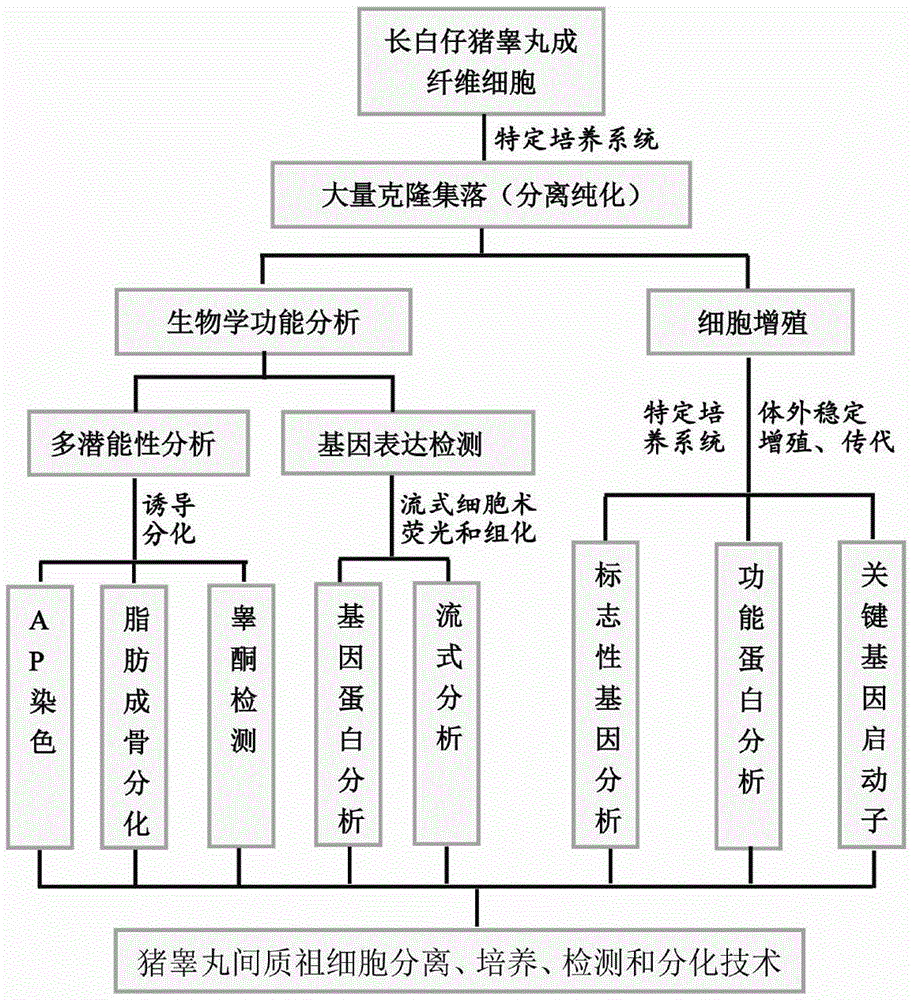Long-term culture method for swine testicle mesenchymal progenitor cells
A culture method and technology of progenitor cells, applied in the field of in vitro separation, detection and differentiation, and long-term culture of porcine Leydig cells
- Summary
- Abstract
- Description
- Claims
- Application Information
AI Technical Summary
Problems solved by technology
Method used
Image
Examples
Embodiment 1
[0032] Embodiment 1 A kind of in vitro separation and proliferation method of pig PLCs
[0033] A method for separating and proliferating pig PLCs in vitro, the steps are as follows:
[0034] Piglet testis fibroblasts were cultured under specific culture conditions (containing 15% FBS, 55 μM β-mercaptoethanol, 1% ITS, 1% L-glutamine, 1% nucleotides, 1000IU / mLLIF, 10ng / mLEGF, 10ng / mLbFGF, 20ng / mL PDGF-BB and DMEM medium containing 1% Penicilin-Stretomycin), the cell division ability is strong, and a large number of PLCs clones can be produced in 7 days of cultivation (such as figure 2 A), collect clonal colonies for PCR analysis, and compare testicular tissue, showing that they express PLCs molecular markers (Gata4, Pdgfra1, Lifr, Cyp11a1, Cyp17a1 and Star), and mature mesenchymal cells have not yet appeared at this time, so neither expresses and 3β-Hsd (such as figure 2 B), indicating that under specific culture conditions, porcine PLCs can be rapidly expanded in vitro, and ...
PUM
 Login to View More
Login to View More Abstract
Description
Claims
Application Information
 Login to View More
Login to View More - R&D
- Intellectual Property
- Life Sciences
- Materials
- Tech Scout
- Unparalleled Data Quality
- Higher Quality Content
- 60% Fewer Hallucinations
Browse by: Latest US Patents, China's latest patents, Technical Efficacy Thesaurus, Application Domain, Technology Topic, Popular Technical Reports.
© 2025 PatSnap. All rights reserved.Legal|Privacy policy|Modern Slavery Act Transparency Statement|Sitemap|About US| Contact US: help@patsnap.com



